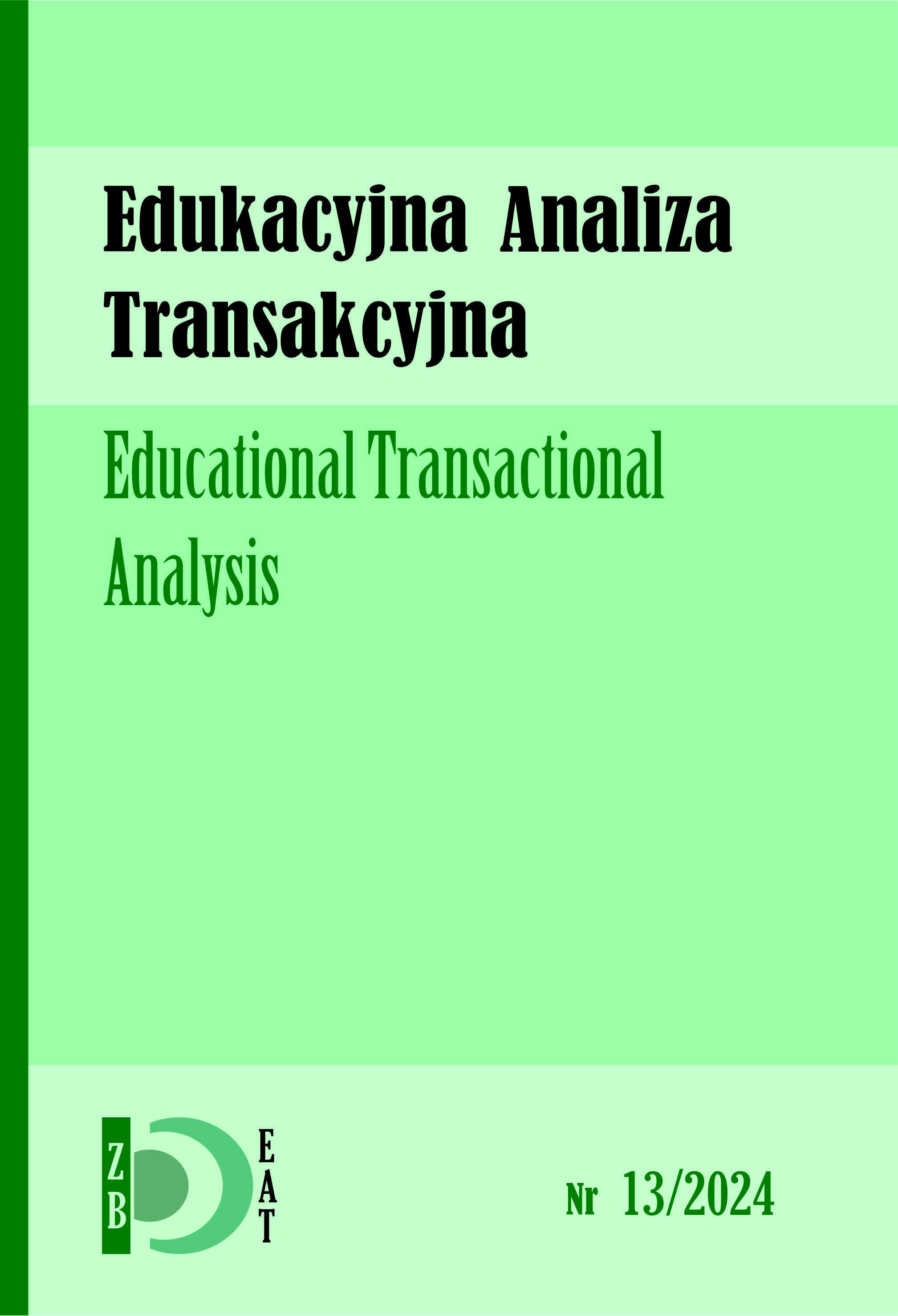The Potential of Educational Transactional Analysis for Human Rights Education
DOI:
https://doi.org/10.16926/eat.2024.13.05Keywords:
Human Rights Education, Transactional Analysis, Empowerment, Communication, Rights-Respecting, European Union Agency for Fundamental RightsAbstract
Human Rights Education (HRE) is a dynamic initiative fostering knowledge, values, and skills for the promotion and protection of human rights. Rooted in principles like dignity and justice, HRE empowers individuals to actively contribute to human rights advancement. The European Union Agency for Fundamental Rights (FRA) exemplifies this commitment, engaging in initiatives to raise awareness and understanding of human rights principles. Concurrently, Educational Transactional Analysis applies TA theory to educational settings, enhancing communication and relationships. TA, with its Parent, Adult, and Child Ego States, aligns with HRE principles, promoting self-awareness and empathy. Applying TA in HRE involves recognizing emotional responses and understanding social and historical contexts. Integrating TA concepts enriches the educational experience, fostering an empathetic and communicative environment. The study applies TA concepts to real-life dialogues, exploring their applicability in HRE. Results reveal TA's potential to address workplace and educational challenges, aligning with HRE principles of open communication, conflict resolution, and rights-respecting dialogue. The intersection of TA and HRE provides a comprehensive framework for enhancing social interactions and promoting human rights principles.
Downloads
References
Baute, P. (1979). Intimacy and Autonomy are Not Enough (Is TA a Middle-Class Tranquilizer?). TA Bulletin, 9(3), 170-173. https://doi.org/10.1177/036215377900900303
Campos, L. P. (2010). Redecision Therapy and Social Justice. Transactional Analysis Journal, 40(2), 85-94. https://doi.org/10.1177/036215371004000202
Campos, L. P. (2012). Cultivating Cultures of Courage with TA. Transactional Analysis Journal, 42(3), 209-219. https://doi.org/10.1177/036215371204200307
Campos, L. P. (2014). A Transactional Analytic View of War and Peace. Transactional Analysis Journal, 44(1), 68-79. https://doi.org/10.1177/0362153714531722
Drego, P. (2006). Freedom and Responsibility: Social Empowerment and the Altruistic Model of Ego States. Transactional Analysis Journal, 36(2), 90-104. https://doi.org/10.1177/036215370603600203
James, M. (1983). Cultural Scripts: Historical Events vs. Historical Interpretation. Transactional Analysis Journal, 13(4), 217-223. https://doi.org/10.1177/036215378301300403
Klein, M. (1980). Thoughts and Feelings: A Functional Description of Health, Pathology, Diagnosis and Cure. Transactional Analysis Journal, 10(2), 96-100. https://doi.org/10.1177/036215378001000203
Oates, S. (2012). Who Decides and What Can Be Changed? Transactional Analysis Journal, 42(3), 176-182. https://doi.org/10.1177/036215371204200303
Rinzler, D. (1984). Human Disconnection and the Murder of the Earth. Transactional Analysis Journal, 14(4), 231-236. https://doi.org/10.1177/036215378401400406
Whitney, N. J. (1982). A Critique of Individual Autonomy as the Key to Personhood. Transactional Analysis Journal, 12(3), 210-212. https://doi.org/10.1177/036215378201200310
Downloads
Published
How to Cite
Issue
Section
License
Copyright (c) 2024 Piotr Toczyski

This work is licensed under a Creative Commons Attribution 4.0 International License.
I am aware that the Educational Transactional Analysis journal is published under a Creative Commons license - Attribution (https://creativecommons.org/licenses/by/4.0/legalcode).
By submitting the article, I agree to make it available under this license

